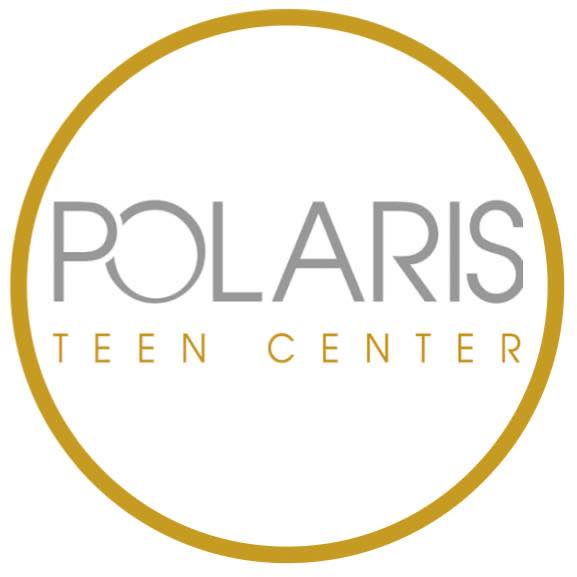Polaris Teen Center - TREATMENT REVIEWS
Polaris Teen Center is a residential treatment center in Los Angeles, California, that provides comprehensive support and care for teenagers struggling with emotional, behavioral, and mental health issues. The facility helps adolescents overcome challenges and develop the skills to lead fulfilling lives.
One of the unique features of the Polaris treatment center is its beautiful and peaceful setting. Nestled in the heart of Los Angeles, the center is surrounded by stunning natural scenery, including lush green trees, picturesque hills, and crystal-clear lakes. This environment provides a calm, serene atmosphere that can be incredibly therapeutic for teenagers struggling with stress, anxiety, and other mental health issues.
The center is staffed by highly qualified and experienced professionals who provide the best possible care for their patients. The team includes licensed therapists, medical professionals, and support staff who work together to provide a comprehensive and personalized treatment plan for each individual. This team-based approach ensures that each teenager receives the care and attention they need to overcome their challenges and achieve their goals.
Polaris rehabilitation offers numerous programs and services to help teenagers develop the skills and tools they need to succeed. These programs include academic support, life skills training, and recreational activities that promote physical and emotional wellness. Additionally, the facility offers a variety of specialized therapies that can help teenagers address specific issues, such as substance abuse, trauma, and eating disorders.
Polaris mental health center focuses on providing a stress and trigger-free zone where teenagers can grow and thrive. The facility is like a home away from home, with comfortable living spaces, nutritious meals, and a wide range of amenities that promote relaxation and well-being. This creates an environment where teenagers feel comfortable and supported, which can be crucial to their recovery.
Treatment Options At Polaris Treatment Center
Polaris Teen Center offers various evidence-based treatment options to help teenagers overcome their mental health challenges and develop the skills they need to lead fulfilling lives. The following are some of the treatment options available at the center:
Cognitive Behavioral Therapy (CBT)
This therapy is based on the idea that our thoughts, feelings, and behaviors are interconnected. By identifying negative thought patterns and challenging them, teenagers can learn to change their behavior and improve their mood. At Polaris center, therapists use a specialized form of CBT called Trauma-Focused Cognitive Behavioral Therapy (TF-CBT) to help teenagers overcome trauma and other emotional challenges.
Dialectical Behavioral Therapy (DBT)
This therapy helps teenagers who struggle with regulating their emotions. DBT teaches teenagers to identify and tolerate feelings, communicate effectively, and manage stress healthily.
Acceptance and Commitment Therapy (ACT)
ACT assists teenagers in living in the present moment without getting caught up in negative thoughts or feelings. The therapy teaches teenagers to accept their emotions without judgment and make choices that align with their values and goals.
Post Induction Therapy (PIT)
This therapy is helpful for teenagers who have experienced trauma or attachment issues. PIT focuses on building trust and connection between the therapist and patient, which can help them develop healthier relationships in the future.
Family Systems Therapy
This therapy involves the entire family, aiming to improve communication and strengthen relationships. It can help teenagers with substance abuse, eating disorders, or behavioral problems.
Psychoeducation Group Therapy
This therapy provides teenagers with information and tools to better understand their mental health challenges. Psychoeducation Group Therapy can help teenagers develop coping strategies, reduce stigma, and improve their mental health.
Brain Spotting
Brain spotting is a mindfulness-based therapy that helps teenagers access and process difficult emotions and experiences. It can benefit teenagers who have experienced trauma or struggle with anxiety or depression.
Somatic Experiencing
Somatic experiencing may help regulate the nervous systems and process traumatic experiences. It can be helpful for teenagers who have experienced trauma, attachment issues, or other emotional challenges.
Experiential and Holistic Care At Polaris Center
In addition to evidence-based therapies, Polaris Teen Center offers experiential and holistic treatments to help teenagers develop self-awareness, self-confidence, and a sense of connection with themselves and others. The following are some of the experiential and holistic treatments available at the center:
- Art Therapy: Art therapy involves using art materials to help teenagers express themselves and explore their emotions non-verbally. Patients who struggle with verbal communication or have experienced trauma can benefit from this therapy.
- Equine-Assisted Therapy: This therapy involves working with horses to develop emotional regulation, empathy, and communication skills.
- Yoga: This practice involves physical postures, breathing exercises, and meditation to help teenagers develop physical strength, flexibility, and mental clarity. Yoga may help patients with stress, anxiety, or other emotional challenges.
- Meditation: This practice focuses on the present moment without judgment or distraction. Meditation may be helpful for people who struggle with anxiety, depression, or other emotional challenges.
- Adventure Therapy: This therapy involves outdoor activities, such as hiking or rock climbing, to help teenagers develop self-confidence, leadership skills, and a sense of connection with nature.
- Nutrition and Exercise: Polaris Teen Center emphasizes the importance of healthy eating and physical activity in promoting overall wellness. Nutrition and Exercise programs help develop healthy habits and improve physical and mental health.
- Massage Therapy: This therapy uses touch to promote relaxation and reduce stress.
FAQs
What is the admissions process like?
The admissions process at Polaris treatment center begins with a phone consultation to determine if the center fits the teenager’s needs. If the center is a good fit, the patient will undergo a comprehensive assessment to determine their treatment needs. Once the evaluation is complete, a treatment plan is developed, and the patient is admitted to the center.
Is family involvement encouraged at Polaris rehabilitation center?
Yes, family involvement is an integral part of the treatment process at the facility. The center offers family therapy, family education programs, family visits, and communication opportunities throughout the treatment process.
What happens after a patient completes Polaris residential treatment?
After completing the program at the center, teenagers will continue to receive support and aftercare services to ensure a successful transition back to their home and community. This may include continued therapy, support groups, and referrals to community resources.
What makes Polaris Teen Center unique?
Polaris Teen Center is unique in its commitment to treating the whole person, not just their symptoms. The center offers a range of scientifically-backed and experiential therapies and a nurturing environment to help teenagers develop the skills and tools they need to overcome their challenges and lead happy and fulfilling lives. Additionally, the center has a staff of highly trained and experienced professionals who are dedicated to helping teenagers achieve their goals.
What happens if a patient becomes aggressive or violent?
The staff is trained in crisis intervention and de-escalation techniques, and there is a comprehensive emergency response plan in case of any security issues. If a patient becomes aggressive or violent, the staff will take steps to ensure the safety of all clients and staff members, including removing the patient from the situation and providing necessary medical attention.
How does Polaris Teen Center address issues related to diversity and inclusion?
Polaris treatment center is committed to creating a safe and inclusive environment for all clients, regardless of race, ethnicity, gender identity, sexual orientation, or religion. Each team member gets training in cultural competency and diversity and works closely with clients and their families to ensure their unique needs and perspectives are respected and valued. The center also offers programs and services that address issues related to diversity and inclusion, such as support groups and cultural awareness training.
Polaris Teen Center- Cost/Prices, Center/Clinic/Retreat/Resort Facilities, Inpatient Treatment Program Services
- Title Polaris Teen Center
- Treatment Program Mental Health / Autism / Self Harm / Substance Abuse / Anxiety Disorders / Depression / Eating Disorders / Trauma & PTSD / Personality Disorder / ADHD / Bipolar
- Location United States/ Los Angeles/ California
- Languages English
- Accommodation Shared Room
- Environment City
- Age Underage
- Approach Holistic, Group
- Method Art Therapy, Maditation, Mindfulness based stress reduction (MBSR), Music Therapy, Sport Activities, Psychiatric Therapy, Somatic Experiencing, Yoga, Cognitive Behavioral Therapy (CBT), Dialectical Behavior Therapy (DBT)
- Aftercare Yes
- Amenities Private Chef, SPA, Pool, Private Residence, Walking, Leisure Activities
- Gender Women & Men
Polaris Teen Center Video
Polaris Teen Center Contact
- E-mail Info@polaristeen.com
- Website https://polaristeen.com/
- Phone +1 8448360222
- Address 4981 Amigo Ave, Tarzana, CA 91356, United States.

 Polaris Teen Center
Polaris Teen Center






